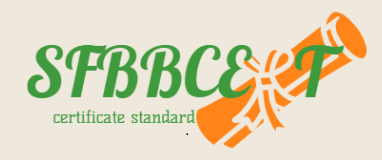In recent weeks, reports of gastrointestinal illness caused by Salmonella-contaminated eggs in several countries, including the United States, have raised concerns among food safety experts and professionals in the food industry. This crisis underscores the importance of strict adherence to food safety principles and the implementation of standards such as SFBB, as well as obtaining certifications like sfbbcert.
Salmonella Outbreak from Eggs: A Cautionary Case
In June 2025, an official report revealed that contaminated eggs in the United States caused illness in 134 people across 10 regions. Of those affected, 38 were hospitalized and, unfortunately, one person died. The outbreak was traced back to eggs produced by the company August Egg.
Although this incident occurred outside of our borders, the similarities in global food supply chains highlight the relevance of taking similar precautions everywhere.
What Is Salmonella and How Is It Transmitted?
Salmonella is a type of bacteria commonly transmitted through the consumption of contaminated food—especially meat, eggs, unpasteurized milk, and raw or underprocessed products. Contamination can also occur via contact with contaminated hands or surfaces, undercooked food, or poor personal hygiene in food preparation environments.
Common Symptoms of Salmonella Poisoning
Abdominal pain and diarrhea
Fever and chills
Nausea and vomiting
General weakness
In severe cases, hospitalization or even death
What Mistakes Lead to These Crises?
Improper storage temperatures for eggs
Inadequate washing or not washing eggs before use
Storing eggs near ready-to-eat foods (cross-contamination)
Undercooking or using raw eggs in sauces and desserts
Lack of food safety management systems (HACCP, SFBB, ISO)
The Solution: Implementing the SFBB Standard in Food Businesses
SFBB (Safer Food, Better Business) is a comprehensive food safety management package designed to prevent foodborne illnesses by promoting proactive practices. It emphasizes prevention, training, hygiene, and daily record-keeping to help businesses manage their operations safely.
Key Components of SFBB:
Thorough cleaning of equipment and workspaces
Preventing cross-contamination (e.g., raw eggs contacting ready-to-eat foods)
Monitoring cooking and storage temperatures
Continuous staff training
Daily documentation of processes and potential issues
Countries that have adopted SFBB, either as a requirement or a recommendation, have seen significant reductions in foodborne illnesses.
sfbbcert: Building Public Trust
A practical step for food businesses is obtaining the sfbbcert certification. This certificate signifies a company's commitment to hygiene, food safety, and staff education—ultimately fostering greater consumer confidence.
Benefits of sfbbcert for Food Industry Professionals:
Increased customer trust
Priority for permits and participation in trade events
Ongoing education and information updates
Implementation of incident tracking systems (e.g., inspecting egg deliveries and storage conditions)
Better preparedness for inspections and health audits
How to Keep Eggs Safe
For consumers and small businesses, the following precautions can greatly reduce the risk of Salmonella transmission:
At Home:
Store eggs in the refrigerator below 4°C (39°F)
Avoid using eggs with cracked shells or unusual odors
Always cook eggs thoroughly (both yolk and white should be firm)
Wash hands and utensils with hot water and soap after handling raw eggs
In Restaurants or Retail Settings:
Check expiration dates and storage conditions for eggs
Prevent eggs from contacting cooked or ready-to-eat foods
Monitor and log cold storage temperatures daily
Ensure staff are trained in SFBB or equivalent programs
Use pasteurized eggs for any products requiring raw egg (e.g., mayonnaise or desserts)
The Role of Regulatory Bodies
Regulatory agencies and food industry associations have emphasized the importance of hygiene for raw products such as eggs. Recommended actions include:
Encouraging the use of eggs with certified quality standards
Requiring temperature logs and expiration tracking in production and distribution units
Enforcing sanitation protocols in restaurants and industrial kitchens
Ongoing training for food service staff according to standards like SFBB and sfbbcert
Global Lessons, Local Applications
Though the recent Salmonella outbreak originated in the U.S., the lessons apply universally:
Even organic or packaged eggs can carry risks without proper oversight
Hygiene, training, and consistent record-keeping are essential for prevention
Businesses following frameworks like SFBB or HACCP are better equipped to respond
Certification like sfbbcert promotes transparency, accountability, and prevention
Conclusion
The recent Salmonella outbreak tied to eggs highlights how even small lapses in food hygiene can lead to public health and economic crises. To prevent similar incidents globally:
Adopt food safety standards like SFBB in businesses
Demonstrate public health commitment through sfbbcert certification
Mandate continuous training for food staff and managers
Monitor egg storage and usage conditions meticulously
Promote safe food handling practices among consumers
With proper implementation, many foodborne illnesses and related emergencies can be avoided—ensuring the health and well-being of communities everywhere.





No comment